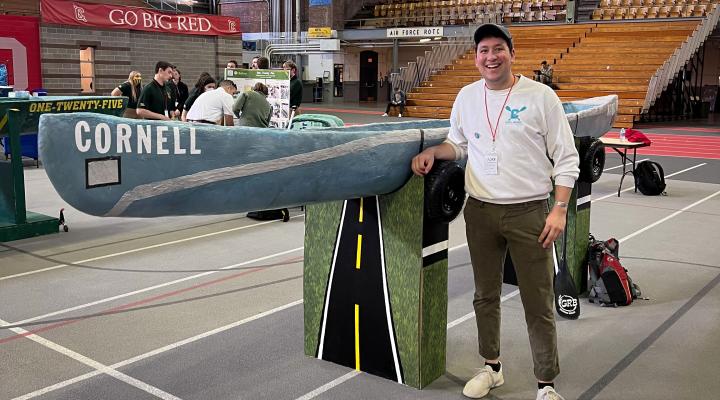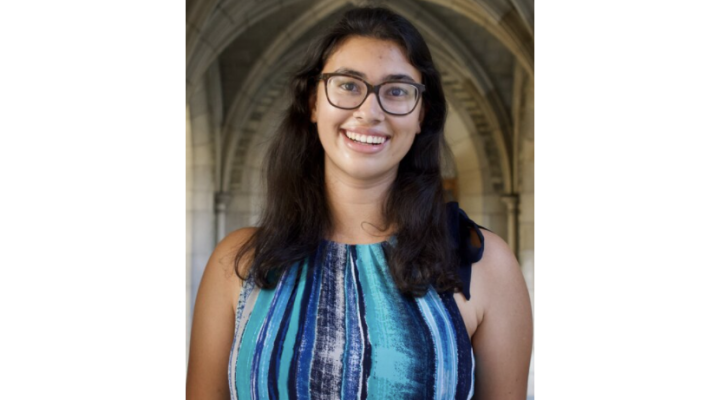What inspired you to pursue a degree in engineering?
Engineers solve the world's most pressing problems and make an impact on people's life. It was my dream to contribute to the solution of the environmental problems all over the world, so I opted to become an environmental engineer as I entered college.
What drew you to Cornell CEE?
My advisor, Dr. Pete Diamessis, is a young but accomplished researcher in my area of research. I was motivated to learn about the state-of-the-art high-accuracy computational tools he developed; fortunately, he also offered me a very cool project which I can work on.
Tell us about your current research.
One of my main research interest is turbulent flows in the environment. Other than being the last unsolved problem in classical mechanics, turbulence is ubiquitous in the environment and has various fundamental impact on the ocean and and the atmosphere. What fascinates me the most is the multitude of scales in these naturally occurring motions, and the richness of physics and beauty associated with them. My research employs state-of-the-art high-accuracy computational tools to investigate these turbulent flows; deciphering both the physics and the beauty of these flows from Terabytes of data generated from supercomputers, is a highly intellectually rewarding experience for me. The objective of my research is to obtain more insights on these flows and provide the engineers and scientists with more informed models of our environment.
Have you received any awards at Cornell?
I was really honored and excited to win the John E. Perry Teaching Assistant Prize for my TA experience in Spring 2014. I was also a recipient of the Joseph H. DeFrees Fellowship to supplement my research assistantship which supports my stay at Cornell.
What’s your favorite part about the CEE major?
It is a good area where one applies basic scientific principles to solve complicated and demanding problems for the human beings.




